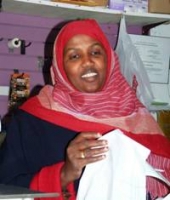
Photo: immigrant-owned businesses in San Diego’s Little Mogadishu, Little Saigon, and downtown El Cajon
By Nadin Abbott
April 9, 2014 (San Diego)—In recent years there has been considerable debate over how to modify the immigration system and how to grow the economy. Both are related--and both matter to not just the national economy, but our regional economy. There has also been renewed emphasis in growing our export capacity, which has lagged. But there has always been an emphasis on small businesses as the engine of American economy—and now a new report shows that immigrants are fueling that engine.
According to the report from Renew our Economy titled Open for business: How immigrants are driving small business creation in the United States, “immigrants are more than twice as likely to start a business as the native-born. In 2011, the immigrant business-formation rate was 550 new businesses per month for every 100,000 immigrants, while the native-born rate was only 270 new businesses per month for every 100,000 native-born.”
This is not the only organization making these findings. According to a report from the Fiscal Policy Institute titled Immigrant small business owners: a significant and growing part of the economy, “18 percent of small business owners in the United States are immigrants.”
The majority of these businesses are actually owned by Mexican Immigrants, according to Fiscal Policy Institute, followed by people from the Middle East, as well as South East Asia.
What are these businesses? They are your corner store, the cleaners, restaurants, even the Liz Taylor empire. Locally we see this happening in places like El Cajon, City Heights and the Little Saigon District, where immigrant-owned businesses are turning around blighted areas, breathing new life into communities.
There is another role for these businesses. As we try to grow an export economy in our region, we should be aware that more of these business owners are apt to engage in export activities. It is self-fulfilling in some ways, since immigrants have a foot abroad, and language skills as well as social networks. Therefore it is easier for these immigrants to penetrate foreign markets.
 Moreover, when immigrants currently employ one in ten American workers, and they add more than $775 billion to the economy, this is nothing to scoff at. Any serious discussion of the economy has to include a serious discussion on Immigration policies and how these immigrants are drivers of economic activity.
Moreover, when immigrants currently employ one in ten American workers, and they add more than $775 billion to the economy, this is nothing to scoff at. Any serious discussion of the economy has to include a serious discussion on Immigration policies and how these immigrants are drivers of economic activity.
The Small Business Administration (SBA) is also aware of this pivot in economic development. They write in a report that “Business formation rates are even higher among immigrants than non immigrants.”
The SBA is now in the process of developing the necessary data to understand how immigrants access capital. The SBA is also aware that 7.1% of immigrant businesses will export, when compared to 4.4% of native businesses. This is seen as critical as the United States makes that pivot to the pacific searching for markets.
So while we all talk immigration, instead of focusing solely on negative aspects of the issue, it makes sense to also look at the positive contributions that immigrants make to the United States. Creating one of every 10 jobs is important, but so is opening markets abroad. Right now there is serious talk on how to improve business conditions in the United States and California is particularly well placed, as well as our San Diego region. We have a large immigrant community from all over the world—and these immigrants will be part of the engine for economic recovery.










Recent comments